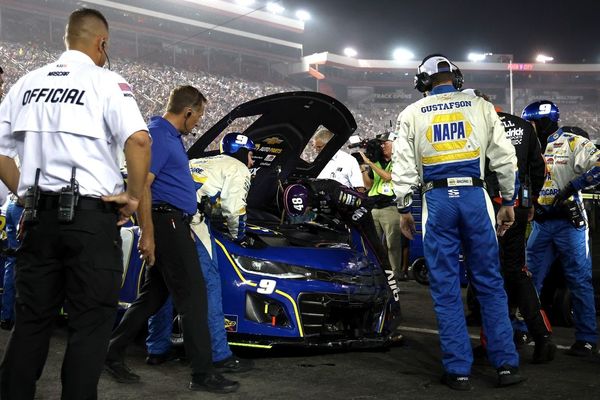Sarepta stock crashed Friday after the Food and Drug Administration reportedly asked the biotech company to stop shipments of its approved gene therapy, Elevidys.
The news comes after two teenage boys died of acute liver failure following treatment with the Duchenne muscular dystrophy drug. Sarepta Therapeutics also confirmed Friday a third patient died of acute liver failure after receiving the company's experimental gene therapy for limb-girdle muscular dystrophy.
According to analysts and several media reports, the third patient was a 51-year-old man. Sarepta told Investor's Business Daily he was enrolled in one of the company's clinical studies and died in June. Late Wednesday, Sarepta announced restructuring plans in the wake of the first two deaths, but didn't disclose the third on a call with analysts, nor has it put out a press release.
Leerink Partners analyst Joseph Schwartz took Sarepta to task in a report to clients.
"As management allegedly knew about this death yesterday when they hosted the restructuring conference call (and dodged our question on additional liver hospitalizations), this news will likely diminish any remaining goodwill management had (or rebuilt slightly yesterday)," he said.
Sarepta stock plummeted 35.9%, closing at 14.07. That completely reversed the 19.5% gain from Thursday when the company announced it would lay off roughly 500 employees, cut $400 million in annual costs and pause development for most of its gene therapies, including the one associated with the most recent patient death.
Find Stocks To Watch: From Top IPOs To Large And Small Caps
FDA Report Rattles Sarepta Stock
In a new development Reuters reported, citing an unnamed source, the FDA will reportedly ask Sarepta Therapeutics to voluntarily stop all shipments of its gene therapy, Elevidys.
A spokesperson for Sarepta didn't immediately return a request for comment from Investor's Business Daily.
The news comes after Sarepta said it would add a warning of acute liver failure to the label for Elevidys.
Earlier this week, Sarepta preliminarily reported $282 million in second-quarter sales of Elevidys. That missed expectations and "indicates decline in Elevidys interest," William Blair analyst Sami Corwin said in a report to clients.
Sarepta needs to hit $500 million in annual Elevidys sales to meet its convertible debt obligations, she added.
Shares Take A Credibility Hit
Leerink's Schwartz has maintained his outperform rating on Sarepta stock, but it's solely tied to expected cash flows.
"Fundamentally, we believe there can be a distinction between a good company and a good stock, and our view here now is driven purely by expected cash flows," Schwartz said. "That said, we are deeply disappointed in management's repeated execution missteps."
He noted the experimental LGMD gene therapy uses the same viral vector delivery system as the approved gene therapy, Elevidys. Though Sarepta has scrapped the LGMD gene therapy in which a patient died, it's still testing another gene therapy for a smaller pool of LGMD patients.
Schwartz said that on the call he directly asked Sarepta's executives about additional acute liver failure cases and how many hospitalizations occurred. The company's answer was "selective" and led him to believe the company might not be taking these cases seriously.
"Considering we have long known that liver toxicity is a risk for adeno-associated virus/AAV-mediated gene therapies, combined with the signals seen with Elevidys, we are shocked that management is not tracking this signal more closely and providing us with a good answer to a very germane question," he said.
A 'Feature, Rather Than A Bug'
The third death is also likely to further hamper already struggling sales of Elevidys, analysts said.
Like the teenage boys who received Elevidys, the 51-year-old LGMD patient likely received the highest dose of the experimental gene therapy. Sarepta discontinued this gene therapy, but is still working on another, SRPT-9003, for a smaller pool of LGMD patients.
"We believe the death could lead to greater scrutiny of SRPT-9003's safety profile ahead of its BLA (Biologics License Agreement) submission and could affect commercial interest, if approved," William Blair's Corwin said in another report. A BLA is an approval request.
Corwin has a market perform rating on Sarepta stock.
Similarly, RBC Capital Markets analyst Brian Abrahams says the news could cast a pall on the entire gene therapy space. It will likely perpetuate worry that acute liver failure is a "feature, rather than a bug" of these drugs.
He rates Sarepta stock as neutral.
Follow Allison Gatlin on X/Twitter at @AGatlin_IBD.







